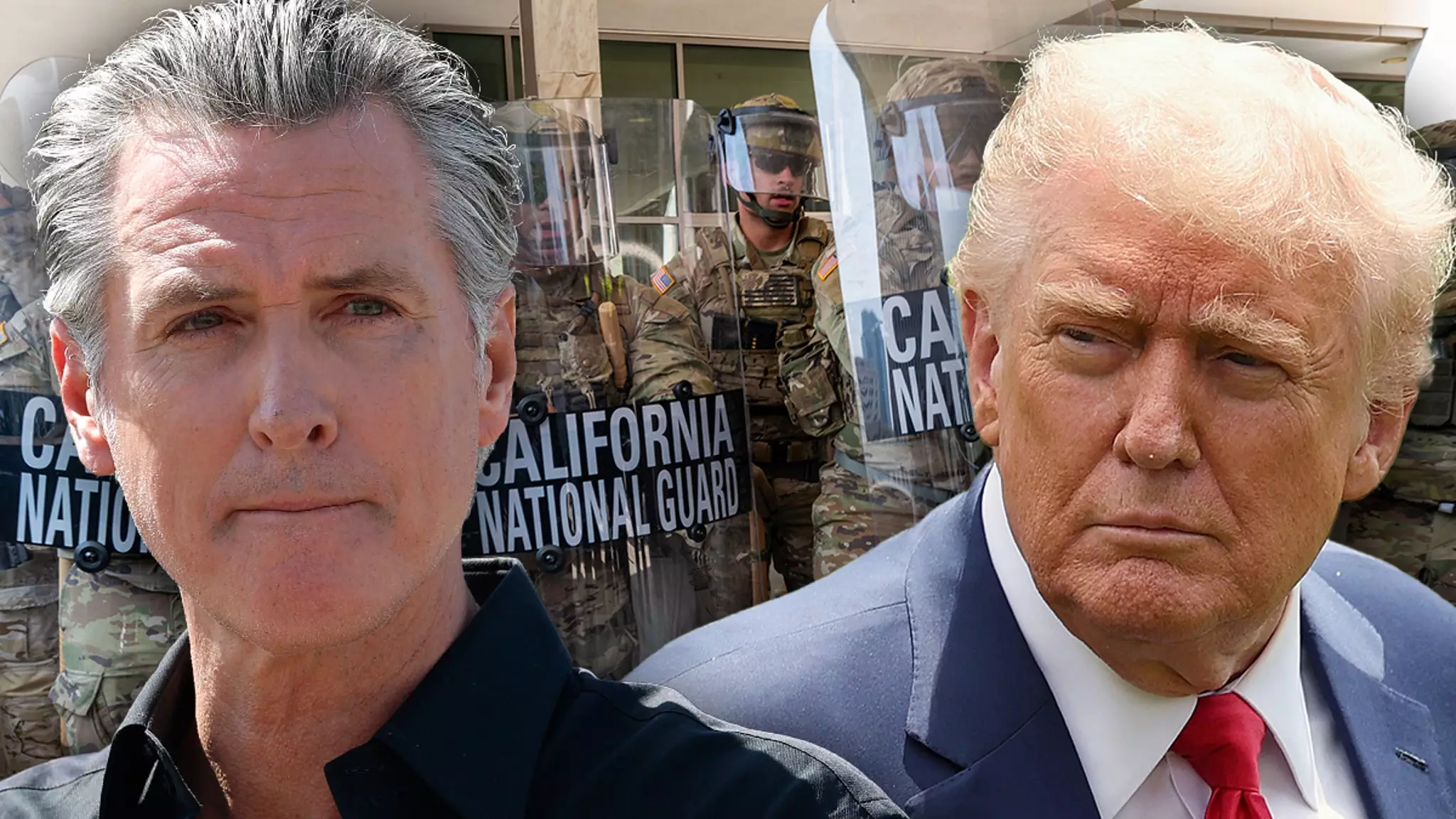In a striking confrontation emblematic of California’s ongoing tensions with the federal government, Governor Gavin Newsom has initiated legal action against President Donald Trump over the recent deployment of the National Guard to Los Angeles. This move comes in the wake of increased protests related to federal immigration policies, a subject that has become a flashpoint in American politics. What Newsom sees as an infringement on state sovereignty, Trump views as a necessary measure to maintain order amid unrest. The lawsuit raises critical constitutional questions regarding authority and governance in a nation deeply divided along political lines.
Assessing the Legal and Constitutional Implications
At the heart of Newsom’s lawsuit lies the assertion that Trump’s action contravenes the established legal framework governing the deployment of state National Guard troops. According to Newsom, the President lacked the necessary authority to deploy the California National Guard without obtaining explicit consent from him as the state’s governor. The stakes are high; this scenario illustrates a precarious dance between state and federal power, calling into question the extent of presidential authority during times of crisis. The legal intricacies of the case will undoubtedly draw scrutiny from constitutional scholars and political analysts alike, as it pits federal power against state rights in a classic federalism debate.
The Political Landscape and Implications for Governance
Newsom’s vehement criticisms of Trump as a “stone cold liar” and his claims that the administration aims to incite civil unrest contribute to an already charged political narrative. By framing the issue as not merely legal but deeply moral, Newsom positions himself as a defender of not just California’s autonomy but also democratic principles. His emotional appeal stems from a belief in the right to self-governance — a sentiment that resonates strongly with his constituents. Furthermore, this legal action may embolden other state leaders grappling with federal overreach, potentially setting a precedent.
Public Response and the Broader Context of Federalism
The public’s response to this unfolding legal battle is telling. Many Californians see Newsom’s lawsuit as a necessary check on executive power, while others view it as a political stunt intended to bolster his standing amid ongoing disputes with the federal administration. This case not only underscores the friction between Trump’s administration and state governments but also reflects broader frustrations regarding immigration policies in America. With significant segments of the population advocating for humane immigration reform, Newsom positions his suit as part of a larger struggle for justice and accountability.
A Call to Action and the Future of State Sovereignty
As Gavin Newsom proceeds with this lawsuit, he clearly aims to reclaim and assert state sovereignty against perceived federal encroachments. This high-stakes legal battle represents more than a disagreement over troop deployment — it encapsulates a concern for the preservation of democratic values in California and across the nation. In today’s polarized environment, every legal maneuver carries implications that extend far beyond the courtroom, reverberating throughout the political landscape. Newsom’s actions serve as a rallying point, highlighting the urgency for a more balanced approach to governance, one that respects the roles and rights of individual states within the union.

